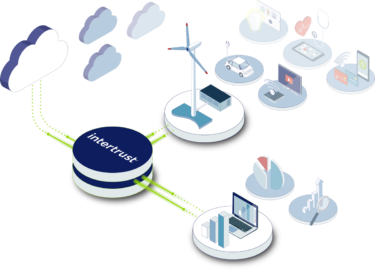Over the next two weeks the number of global smartphone activations will reach its yearly peak. Last year over 6.8 million Android and Apple devices were activated (turned on for the first time) on December 24 and 25, and this number is expected to rise this year.
While Christmas Eve and Christmas Day saw the greatest number of activations Flurry, the mobile analytics service, reported that in the weeks leading up to Christmas it saw a significant increase in smartphone activations.
It seems that people who bought a smartphone or tablet as a present for a loved one turned them on to set them up before they gave them as presents.
So whether you’re setting up a new smartphone for yourself or for a family member here is our selection of the best and most useful apps you should download. We’ve broken these into different categories so you can easily find the types of apps that you might be looking for and, where possible, we’ve tried to find apps that are available for Android and iOS devices.
In most cases the person who will be using the phone or tablet will have to create online accounts for these services but to make the set-up process easier for them you can download the apps before you give them the device.
Security apps
One of the first set of apps that you will want to download for your new smartphone will be security apps. When we think on security apps we think of antivirus software but this is just a small part of what these apps can do. Many of them not only protect your device from malware and viruses but also protect them from Wi-Fi spying as well as help you recover them if they are stolen.
Lookout
Lookout is one of our favourite mobile apps – it’s simple to use, robust, and non-intrusive. Lookout operates like a traditional antivirus app by scanning any new applications that you download, to ensure that they are malware and virus free, but it has a few more functions that make it stand out against others. The app connects to an online account and regularly backs up your phone’s contact list, so if your device is ever stolen you’ll have access to your friends’ phone numbers.
If your smartphone is stolen the app’s website, which you can access from any computer, gives you a few options to recover it. The website allows you to locate your device using a Google Maps interface and (if you want to the person who has taken your device) you can set off an ear piercing alarm (this is also handy if you’ve lost your phone, trust us).
Lookout comes in a free version and a paid version. With the paid option you get additional browsing safety options and extra privacy controls.
Lookout for Android | Lookout for iOS
Prey
The Prey app has some similar functions to the Lookout app but is specifically designed for recovering lost devices. With Prey you can set up a security word which, when texted to your smartphone, will automatically activate its tracking services. You’ll then be able to see where your phone is (its accuracy will depend on whether GPS is activated). You can also remotely access some parts of your device using the web interface.
Prey for Android | Prey for iOS
Health apps
Tawkon
When we talk about health apps we’re not just talking about pedometers but something a little bit more substantial: radiation. Tawkon have produced an app that measures the amount of radiation that a smartphone emits when making and receiving phone calls, the app then reports that data back to you so you know what you can do to prevent yourself from being exposed to more cell phone radiation than you should be. The company says that mobile radiation exposure is usually quite small and is closely policed by the FCC but it’s important to know just what your phone is emitting.
Tawkon for Android | Not available for iOS yet.
Media apps
There are dozens of media apps available for both iOS and Android devices, so we’ll look at ones which are designed to make your life easier.
VLC – Video
VLC is the workhorse of media players: this little app, which is available for Windows and Macs too, plays just about every video format there is. While the app had a bumpy ride when it launched on iTunes store it (where it was soon removed by Apple) a Beta Android version is available on the Play Store.
VLC for Android | Not available for iOS
Photo apps
It’s probably best to let your loved one pick their favourite photo app but you can help them make sure that their photos are always backed up. Several apps allow you to automatically backup and store photos to the web. The Google+ app has offered this service for over a year on Android and iOS smartphones and tablets (but you will have to download Google+ for Apple devices). Apple users can already back up their media to iCloud, but the person to whom you’re giving the smartphone or tablet will have to set this up themselves.
Another nice alternative is Dropbox. The Dropbox Android and iOS apps have the option to automatically upload photos taken with the device to the user’s account, where they will be available on their PC and other devices immediately.
Dropbox for Android | Dropbox for iOS
And you’re done
With these apps you have the basics set up for your new smartphone or tablet. With them you’ll be able to make sure that the new device will be secure, can be found when lost or stolen, and can play any media file you throw at it.
Now all you have to do it wrap it properly.












